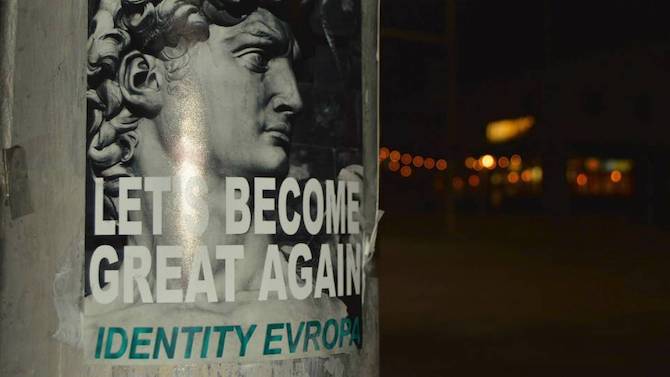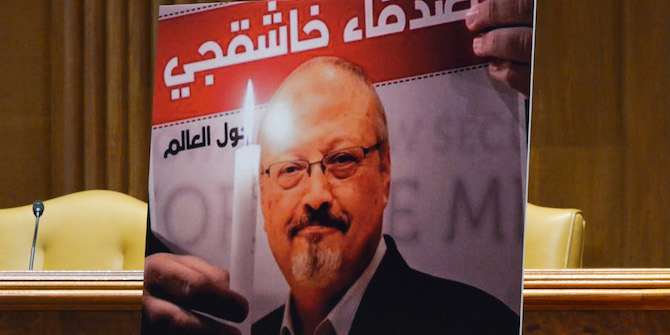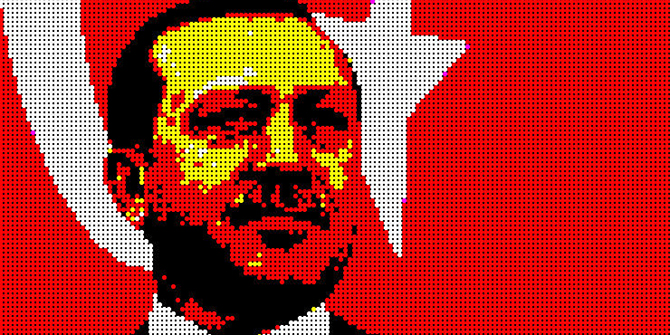by Burak Bilgehan Özpek

For an intellectual in the Middle East, it is a tough business to advocate for universal values such as human rights, freedom of expression or the rule of law. Similarly, social scientists explaining the social and political phenomena based on generalisable theories and using universal terminology face harsh criticisms. This is because of the anti-universalist attitudes inherent in Islamism and nationalism, the dominant ideologies of the region. Defenders of those ideologies regard the Middle East as an exceptional region and claim that universal norms and theories fail to understand and explain it. This leads them to argue that there is no such thing as universalism, given that it excludes this region. They suggest that universalism is instead the local culture of the West, and has been used as an instrument by which the West colonises the Middle East. Therefore, in Islamist and nationalist circles those who criticise local power structures and demand reform on the basis of universalist values are labelled agents of the West.
Nevertheless, the nativist bent of both Islamism and nationalism has been aided by Edward Said’s arguments in his magnum opus, Orientalism. In this book, Said argues that orientalism, as an academic field, was motivated by the political agenda of the West, rather than scientific passion to seek out objective knowledge. This paved the way for Islamist and nationalist intellectuals to adopt post-modernist arguments, challenging universalist understandings of morality and knowledge. Valorising the local culture and believing in the congruence between Western strategic interests and advocacy of universalism helped Islamists and nationalists attract sympathy from the West. For example, Michel Foucault was seduced by 1979’s street mobilisation in Iran and defined the uprisings as a step toward establishing a fair and free political order under Islamic values. In the same period the Iranian feminist writer Atoussa H. was complaining about the attitude of European leftists towards the Iranian revolution. To her, leftists did not know what Islamic government was and ignored the justified fears Iranians had of living under Islamic rule. The European left had been ‘seduced by a cure that is perhaps worse than the disease.’ A similar story was replayed in Turkey when Erdoğan’s Justice and Development Party came to power in 2002. Concerns of Turkish secularists were viewed in Western political circles as an effort to restore the military-backed ancien régime rather than expressions of their legitimate fear of living under an authoritarian Islamist government.
Nevertheless, the arguments of Islamists and nationalists in the Middle East have been challenged by the rise of far-right movements in the West. For years, these ideologies have identified the West as a unitary actor, lacking contradictions among social groups, economic classes and ideological factions. They have never asked ‘which West are we talking about?’. Chantal Mouffe is right to argue that politics has been dead in Europe for decades due to the strength of the neo-liberal centre. However, Middle Eastern Islamists and nationalists have not interpreted the situation in this way. According to them, the West is solely motivated by aggressive and imperialist desires, like a mythological malevolent Greek God living in Olympia.
Unable to account for the rise of Western far-right movements, the anti-universalists’ ideological model has fallen into decay. It has become apparent that the West is not a unitary actor anymore and has serious internal contradictions and dissensus. Moreover, the imagined congruence between Western culture and universal norms has disappeared because far right movements argue that such norms contradict a specifically European local culture. For example, for a European liberal, a Muslim woman should have the freedom to wear a headscarf in public, while a European far rightist would regard this as an assault upon European identity. A similar divergence can be observed regarding the status of immigrants. Therefore, it is safe to argue that there is an obvious contradiction between universalism and nativism in the West.
Such a fault line affects the consistency of the line taken by Islamists and nationalists in the Middle East. On the one hand, they are happy with the popularity in the West of Islamophobia, xenophobia, a value-free foreign policy and economic protectionism, believing that this shows the West’s true colours. On the other hand, they are displeased because universalist critics of far-right movements advocate for the rights of Muslims and immigrants in Europe. Furthermore, they encourage their governments to take humanitarian concerns into account in foreign policy making. For example, they vocally condemn China’s treatment of its Muslim Uighur minority.
This creates a challenge for our region’s Islamists and nationalists because they are used to equating universalism with the West, which they define as imperialist and anti-Islam. The rise of far-right movements has finally given them the West they have long imagined. Nevertheless, they share with this far-right ‘West’ a similar allergy towards universal values and knowledge. However, to condemn far right movements, the radical ideologues of the Middle East are forced to speak the language of universalism. They are thus at a crossroads. Either they will make peace with universalism and criticise far-right movements on this basis, or they will keep their critical stance towards universalism and covertly justify far-right ideologies.
This picture provides an opportunity for the liberals of the Middle East. If Islamists and nationalists choose the first option, liberals will no longer be labelled traitors and agents of the West. They could easily demand reform based on universal values and knowledge. On the other hand, they will have the right to blame Islamists and nationalists for supporting far-right movements and thus jeopardising the liberties of Middle Easterners if they choose the second option. This would bolster liberals’ popularity and legitimacy in the eyes of society. Such opportunities present themselves rarely, and liberals should seize this moment.







Western far right and Middle Eastern islamists, same sh*t, different place.